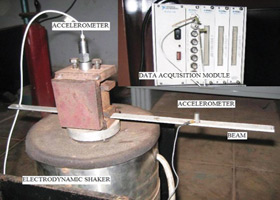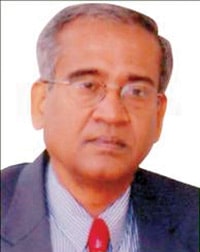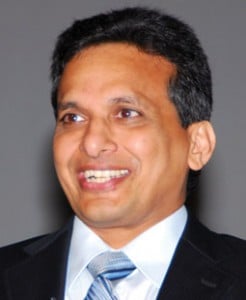
Virtual laboratories today have surfaced as an economical alternative to actual lab experiments. Virtual laboratories have facilitated quality improvement, reduced the time taken for development and testing cycles and thereby have helped cut cost and promote efficiency. We take a look at the perspectives from academicians and the myriad use of Virtual Laboratories in educational institutes
By Sheena Joseph, Elets News Network (ENN)
Laboratories form a significant aspect of engineering education today. They are a part and parcel of practical training and experience for students. Physical laboratories, or the conventional labs, however, take up a significant amount of space, make use of real engineering equipments and need constant technical support and manpower for maintenance.
Virtual laboratories, also known as virtual labs, or cyberlabs, have slowly and gradually become meaningful alternatives to physical labs. With the arrival of latest computer technologies, web-based laboratories are being utilised as a substitute to actual labs. Varied engineering and scientific disciplines are making use of virtual labs using different forms of simulation technologies at their educational institutes.
Virtual laboratories have come in as a boon to engineering institutes across India. Of late, several software packages have come into existence that permit creation of laboratory environments with access to simulations and real equipments via a remote client web interface. Prof Badhopadhyay, Vice Chancellor, Guru Gobind Singh Indraprastha University elaborates, “There could be different types of Virtual Labs: One is the simulation software based labs. Second is where the institute is connected to a laboratory at a distant location, and third is where there is no human intervention.” Varied types of laboratories may be used by educational institutes based on their need and requirements.

Virtual instruments give the complete characteristics of actual instruments, which enable us to analyse the real systems with the help of computer systems
Ashok Verghese
Director, Hindustan Institution of Technology and Science
“Virtual Instrumentation is a breakthrough technology which puts the focus on the engineering concept rather than the equipment. It encourages students to build their own customized instruments with general purpose hardware and customizable software”, says Jayaram Pillai, Managing Director(IndRA) at National Instruments.
Laboratories with Distance Access
Network Virtual Laboratory (NetVL) provides remote access to engineering equipments through the use of the internet. An internet browser with Java and internet connection is enough to enable this access. These devices can either be real or virtual. Information and Communication Technologies are being increasingly used to enable access to laboratory experiments by students in remote and distant locations. Distance is no longer a barrier and students can learn laboratory experiments even through virtual labs.
IP University will soon be upgrading to Virtual Laboratories as a part of NMEICT programme
Prof Badhopadhyay
Vice Chancellor, Guru Gobind Singh Indraprastha University
However, the advantages of Virtual Labs, according to experts, are not uniform. Distant virtual laboratories may have certain shortcomings. This includes instances where students may not necessarily be available for experiments at one particular time period. Distant virtual laboratories also require the presence of a trained technical manpower at the laboratory in order to ensure proper functioning. Experiments will also be dependent on the number of real devices that may be available at a time. Only one user would be able to access the device. In some cases, the overall expenditure of the virtual system including those on devices, webcams, software and technical staff may turn out to be costly for several institutes.
Virtual laboratories remove the maintenance costs that form a part of having high cost equipments
Prof Pankaj Jalote
Director, IIIT- Delhi
The use of virtual laboratories may be justified in areas where the learners are in remote locations and the cost of building laboratories may be too high.
Simulated Virtual Laboratories
The major hitch with actual laboratories and that with distance virtual laboratories is that during the process of experimentation, there may be instances where equipments may break or get destroyed. Repair and maintenance of damaged devices are typically costly and would require the presence of qualified personnel.
Substituting actual equipments with simulators would help surmount this problem. In this, the equipments which are available with the students are fully simulated by computers. There are two ways of creating simulated virtual laboratories: The first way is to develop a simulator in general purpose language and other method is to use general purpose simulation software.
However, the simulator must be able to completely replicate the effects of the real device. It has been observed that simulated laboratories are very useful and effective for pre-training students. “Virtual instruments give the complete characteristics of the actual instruments which enable us to analyse the real systems with the help of computer systems,” says Ashok Verghese, Director, Hindustan Institution of Technology and Science.
With the massive requirement of engineers in the coming years, engineering institutes can very well use Virtual Laboratories to provide laboratory  experience to students.
experience to students.
Prof Prem Vrat
Vice Chancellor, ITM University, Gurgaon
“Virtual laboratories are no doubt cost effective in the learning process. All engineering institutes may not be able to afford high cost equipments. But I still feel that students must also have hands on experience. Virtual labs may be helpful in removing initial inhibitions but one should also perform experiments by hand”, says Prof Bandhopadhyay. “I personally feel that students ought to go near the experiments and they have to see it to believe it”, he adds. Virtual labs contribute in terms of providing confidence to students and removes initial anxieties and stress.
Virtual Labs under NMEICT Programme
‘Virtual Labs’, which have gained mileage under the National Mission on Education through ICT, is an initiative of the Ministry of Human Resource Development, which brings together ten national institutes to collaborate for research and education.
The main purpose of the national mission on ICT has been to offer good quality personalised and interactive academic modules through the internet, intranet and through satellite communication to diverse number of learners present in different higher education institutions at an ‘anytime, anywhere’ mode. The service so provided is free of cost. Prof Badhopadhyay while providing a brief on the laboratories present at the University, elucidates that state of the art laboratories in Applied Science, Chemical Technology, IT, Computer Science or even for Soft Sciences, like Management Education are present at the University. All these laboratories are technology enabled. “IP University will soon be upgrading to Virtual Laboratories as a part of NMEICT programme”, he adds.
An innovative intervention in the field of technology, Virtual Labs provide for access to real virtual laboratories to all educational institutions. Virtual labs are a combination of innovative engineering and objective conceptualization methods to provide interactive learning outcomes.
A Cost Effective Option
The cost to set-up a Virtual Laboratory is relatively very low as compared to real laboratories. Unlike real laboratories, replacements that occur on account of malfunction, damage etc. are not required for Virtual Laboratories. “Real time projects have to be done at real values. As we experiment, there will be some other external factors which also affect the experiment. Simulation laboratories will help us see the expected output and at the same time eliminate the costs involved in real time difficulties”, says Dr Verghese
“Virtual laboratories does remove the maintenance costs that are a part of having high cost equipments”, adds Prof Pankaj Jalote, Director, IIIT- Delhi.
Virtual Instrumentation is a breakthrough technology which puts the focus on the engineering concept rather than the equipment
Jayaram Pillai
Managing Director(IndRA), National Instruments
Prof Prem Vrat, Vice Chancellor, ITM University, Gurgaon seconds the opinion that Virtual Laboratories resolve the issue of having to spend high investment on equipments. “Engineering education is very capital intensive, and with the massive requirements of engineers in the coming years, engineering institutes can very well use Virtual Laboratories to provide laboratory experience to students.”




























